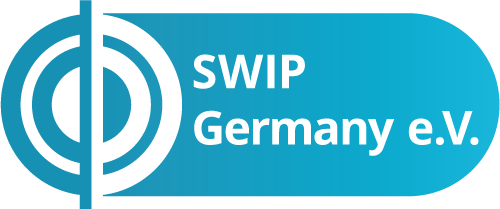Die 12. Jahrestagung der SW*IP Germany findet am 13.11.2025 an der Universität Ulm zum Thema „Wissenschaft, Philosophie und Öffentlichkeit“ statt. Am 14.11.2025 gibt es darüber hinaus einen Satelllitenworkshop zum Thema „Philosophy of Science meets Political Epistemology“.
Alle Interessierten sind herzlich eingeladen!
Programm
| Do, 13.11.25 | |
| 12:00-13:30 | Mitgliederversammlung SW*IP Germany, N27 Die Mitgliederversammlung findet hybrid statt. Für die online-Teilnahme bitte ebenfalls anmelden. Der Zugangslink wird per E-Mail verschickt. |
| Tagung: Wissenschaft, Philosophie und Öffentlichkeit, N27 | |
| 14:00–14:30 | Vorstellung Update Good Practice Guide |
| 14:30–16:30 | Panel Diskussion “Philosophie und Aktivismus” |
| 17:00–18:30 | Keynote Sabina Leonelli (TUM): Open Inquiry for a Democratic Society Openness has long been heralded as a fundamental value to scientific inquiry and democratic societies. This talk examines the multiple meanings of this notion and articulates a specific interpretation (‘humane openness’) as the best way forward for scientific and technological developments. I briefly sketch the history of philosophical debates on openness and the role of inquiry in an open society, focusing on a fundamental contrast between the versions of openness championed by Henri Bergson, and its rational counterpart as famously advocated by Karl Popper. I consider the legacy of these views within contemporary understandings of Open Science, analysing the epistemologies of research presupposed by these views as well as their implications for scientific practice. I argue that while Popper’s take on open inquiry has so far won the day in inspiring research policy and governance, contemporary debates on open science and its role in society would benefit from considering a humane version of openness. I conclude by proposing a version of humane openness that scientific research should incorporate to support social justice, democratic exchange and planetary health. |
| Abendessen | |
| Fr, 14.11.25 | |
| Satellite-Workshop: Philosophy of Science meets Political Epistemology, Pavillon 1, Raum 12 (Alter Senatssaal) | |
| 9:00-9:10 | Welcome |
| 9:10-9:55 | Hannah Hilligardt (Bern) & Hanna Metzen (Konstanz): Trust in and the Authority of Science - why it is worth distinguishing |
| 10:05-10:50 | Sonja Riegler (Frankfurt): Group Ignorance in Science - An Interactionist Account |
| 11:00-11:45 | Nora Kindermann (Tilburg): Fundamentalism - The Usefulness of a Contested Concept |
Abstracts
Hannah Hilligardt (Bern) & Hanna Metzen (Konstanz): Trust in and the Authority of Science - why it is worth distinguishing
Science’s authority – or the erosion of science’s authority – is an important issue in philosophy of science, particularly within the values in science debate. However, despite its prevalence, the notion remains underdeveloped. First, it is unclear what authority is and how it differs from trust in science. Second, there is ambiguity about the type of authority that science has. Philosophers of science mostly talk about epistemic authority and use it somewhat interchangeably with trust. In our talk, we will argue that science not only has epistemic authority, but also indirect political authority and potentially even direct political authority. Scientific authority should not be generally conflated with trust in science. As we will show, this has consequences for value management strategies.
Sonja Riegler (Frankfurt): Group Ignorance in Science - An Interactionist Account
This talk connects the concept of “community-generated ignorance” taken from agnotology (Kourany & Carrier 2020) to key insights in collective epistemology (Lackey 2020, Peels 2023) and interactionist social theory (Barnes 1995). Specifically, I will present a framework for understanding “group ignorance” in science, which explains how collective forms of ignorance emerge within scientific communities. Furthermore, my account explores what it means for a group to be ignorant as a group, particularly in the context of loosely structured groups like scientific communities.
Nora Kindermann (Tilburg): Fundamentalism - The Usefulness of a Contested Concept
Who and what do we classify as “fundamentalist,” and on what grounds? What can we learn from the historical development of the concept? Does its history matter for how we use it today? Is the concept useful for research in the social sciences and humanities? Such questions remain controversial in contemporary fundamentalism research. I analyse the contested concept of fundamentalism and explore how conceptualizing fundamentalism is an inherently normative endeavour. Debates about how to conceptualize fundamentalism, and whether the concept is useful for research, are fundamentally shaped by social, political, and ethical values. The influence of these values goes “all the way down” to our assessment of the concept’s epistemic value. I examine the debates surrounding the concept by combining a historicizing approach with the values-in-science lens, and I offer methodological tools to inform efforts to conceptualize fundamentalism for research in the social sciences and humanities.
Anmeldung
Anmeldung per Email an franziska.reinhard(at)uni-ulm.de
Bitte angeben, ob eine Teilnahme am Abendessen (13.11) und/oder am Satellite-Workshop (14.11) gewünscht ist.

